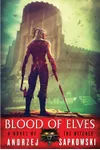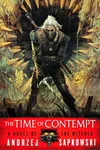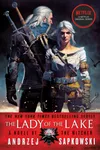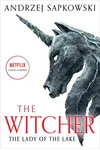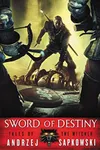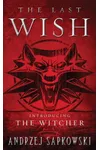Step into the gritty, magical world of The Witcher, where monsters lurk, destinies collide, and a silver-haired hero navigates a morally gray universe! Written by Polish author Andrzej Sapkowski, this fantasy saga follows Geralt of Rivia, a Witcher trained to hunt beasts but caught in a web of politics, love, and fate. With its blend of Slavic mythology, sharp humor, and philosophical depth, The Witcher redefines epic fantasy.
From its humble beginnings in Polish short stories to a global phenomenon, the series captivates readers with its rich world and complex characters. Whether you’re drawn to thrilling action or introspective themes, The Witcher offers something extraordinary.
How The Witcher Began
Andrzej Sapkowski, a former economist, started writing The Witcher in the 1980s, inspired by Polish folklore and classic fantasy. His first short story, submitted to a magazine contest, introduced Geralt and sparked a series of tales blending fairy-tale grit with social commentary. By the 1990s, Sapkowski expanded the saga into novels, gaining a devoted following in Poland before translations brought it worldwide.
The Heart of The Witcher
The series spans eight core books, with standout titles shaping its legacy. The Last Wish (1993) introduces Geralt through interconnected short stories, blending monster hunts with fairy-tale twists. Blood of Elves (1994) shifts to a novel format, focusing on Ciri, a young princess tied to Geralt by destiny. Baptism of Fire (1996) deepens the war-torn saga, showcasing loyalty and sacrifice. Lady of the Lake (1999) concludes the main arc with epic battles and emotional weight.
Set in a medieval-inspired Continent infused with Slavic mythology, The Witcher explores destiny, morality, and humanity’s flaws. Sapkowski’s style—witty, subversive, and layered—challenges fantasy tropes, offering nuanced characters like Yennefer, a powerful sorceress, and Dandelion, a charming bard. Themes of prejudice, power, and choice resonate, grounded in a world of elves, dwarves, and monstrous creatures.
The series’ unique tone balances visceral action with philosophical musings, making it both thrilling and thought-provoking. Its Slavic roots add distinctive flavor, from creatures like strigas to folklore-inspired dilemmas, setting it apart from Western fantasy.
Why The Witcher Resonates
The Witcher’s impact transcends books, inspiring video games, a Netflix series, and a global fanbase. Its morally ambiguous characters and subversive storytelling redefined fantasy, appealing to readers craving depth over escapism. Fans cherish its blend of gritty realism and mythic grandeur, while its exploration of societal issues—racism, war, inequality—feels timeless. Sapkowski’s creation continues to captivate, proving fantasy can be both entertaining and profound.
- First Published: 1986 (short story), 1993 (first book)
- Number of Books: 8 core books
- Notable Award: David Gemmell Legend Award (2009)
Ready to hunt monsters and unravel destinies? Grab The Last Wish and dive into The Witcher’s spellbinding world!
